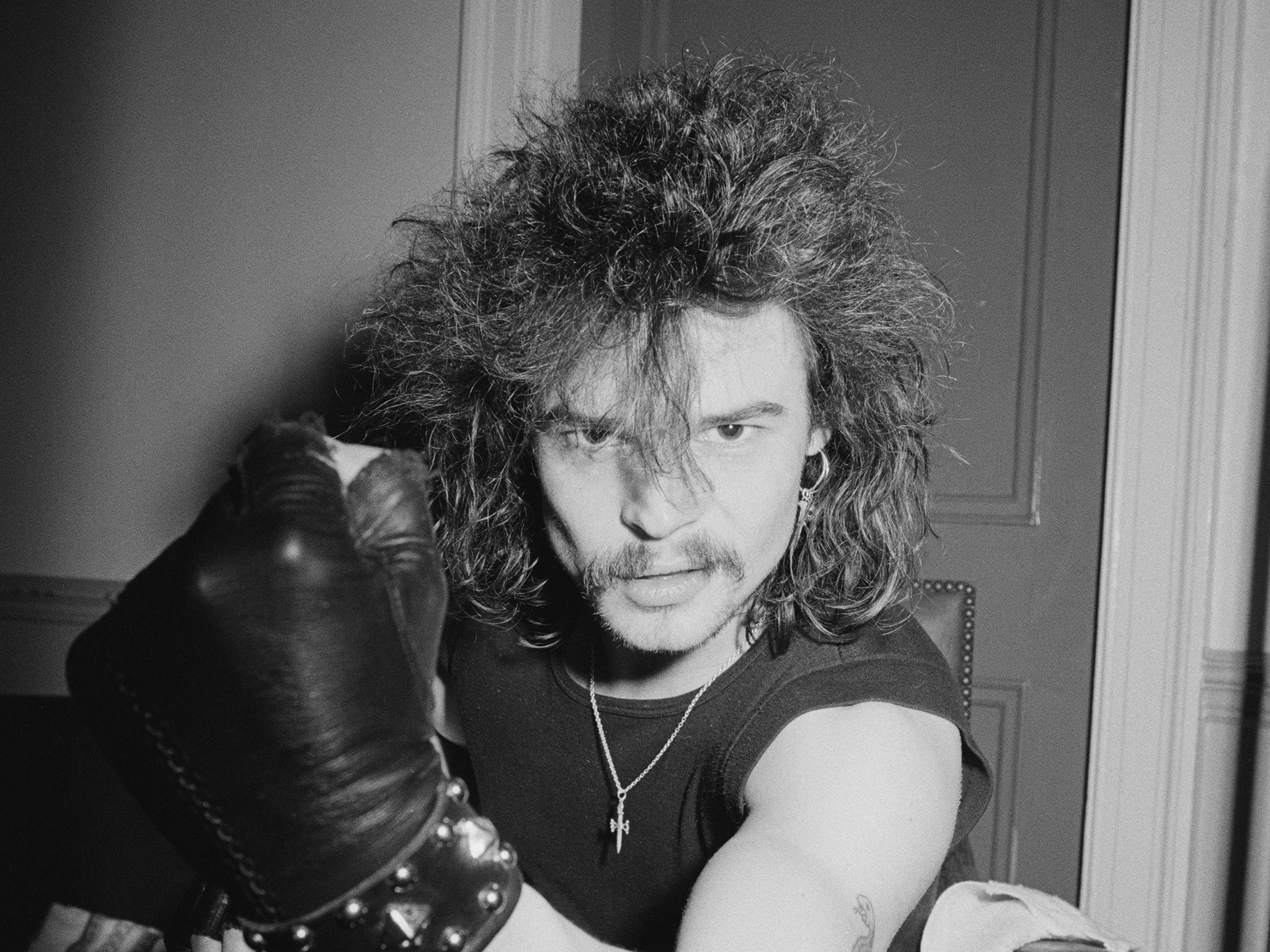Phil 'Philthy Animal' Taylor: Hell-raising Motörhead drummer whose pounding mastery of his kit kick-started the 1980s thrash metal explosion
He was recruited to the band by Lemmy for the prosaic reason that he owned a car

In the late 1970s, the Motörhead drummer, Phil “Philthy Animal” Taylor, put the thrash in metal by simply doubling up the kick-bass-drum pattern on “Overkill”, the title track of the band’s second album, recorded at the Roundhouse Studios in London. Taylor’s relentless drumming went on to resonate throughout thrash metal and was taken up by the so-called Big Four, the four American bands that formed the cornerstones of the fast-moving, irresistible genre that dominated the ’80s, Anthrax, Metallica, Megadeth and Slayer.
Thrash has since bled into death metal and spawned myriad variations away from the Anglo-Saxon rock world, in South America, continental Europe and beyond, and remains one of the dominant strands at music festivals like Download, Hellfest and Sonisphere.
Taylor might have maintained self-deprecatingly that “thrash was what your dad did to you when he took his belt off”, but he made the most of the 10 tracks devoted to his drumkit on the 24-track mixing desk manned by producer Jimmy Miller and engineers Ashley Howe and Trevor Hallesy while recording Overkill in December 1978 and January 1979. The drummer’s incredible stamina did the rest, as it had done on the group’s eponymous 1977 debut, and continued to do throughout their glory years, propelling Bomber (1979), Ace Of Spades (1980) and the No 1 set No Sleep ’Til Hammersmith (1981) into the UK album charts.
He impinged on the nation’s consciousness via memorable, swaggering appearances on Top Of The Pops performing the garage rock classic “Louie Louie” (1978), “Overkill” (1979), “Bomber” (1979) or “Please Don’t Touch”, the Johnny Kidd & the Pirates cover that became the lead track from the St Valentine Day’s Massacre EP Motörhead recorded with all-girl band Girlschool, a pairing billed as Headgirl (1981).
The Metallica drummer and rock genealogist Lars Ulrich said Taylor was “the drummer who introduced me to that double bass type of thing. When I first heard ‘Overkill’ in early 1979, that was what blew my head off.” Slayer sticksman Dave Lombardo concurred. “Motörhead was the first time I heard double bass done at that pattern,” he said. “I had heard of other double bass drummers, but I don’t think they did anything like that, at that tempo and that beat.”
Lemmy Kilmister, Motörhead’s mainman, vocalist, bassist and self-styled “benevolent dictator”, took some of the plaudits but stressed that, “when Overkill first came out, it was an incredible record – ‘Stay Clean’, ‘Capricorn’, ‘No Class’, ‘Tear Ya Down’. Amazingly, we managed to top that with ‘Ace Of Spades’. It’s not a song, it’s the ultimate monster,” he said of their collision of heavy rock and punk, his speed freak revenge on Hawkwind, the space rockers he’d been booted from in 1975.
That was the year Kilmister met the Chesterfield-born Taylor and prosaically recruited the drummer because he owned a car and seemed a better prospect than Lucas Fox, who hadn’t quite worked out on the 1975 sessions released as On Parole in 1979. By the time Kilmister and Taylor had teamed up for Motörhead, their fully-fledged debut in 1977, the former Pink Fairies guitarist Larry Wallis had been replaced by “Fast” Eddie Clarke, a friend of Taylor’s, creating the band’s classic line-up.
It only lasted until 1982, when they hit a creative and critical low with Iron Fist, and took up Clarke on his constant threat to quit. Taylor also proved instrumental in the recruitment of Clarke’s replacement, suggesting the former Thin Lizzy guitarist Brian “Robbo” Robertson, with whom they cut the disappointing Another Perfect Day (1983), before Kilmister soldiered on with three new musicians.
“Let’s just say I took a three-year holiday,” said Taylor, whose antics hadn’t quite affected his reliability, or passed into rock lore yet. Following various injuries, he had played on with a neck brace in 1980, and drum sticks tied to his hands with gaffer tape in 1983, having broken his hand punching someone, and he appeared with the group on the anarchic sitcom The Young Ones in 1984. His behaviour on the toilet-less private jets owned by Gerry Bron, the boss of the Bronze label they were contracted to during their heyday, still raises a smile among former colleagues and contemporaries.
Taylor returned to Motörhead for a brace of studio albums, Rock’n’Roll (1987) and 1916 (1991), but was sacked during the recording of “I Ain’t No Nice Guy” for March ör Die in 1992. “I would never have fired Phil if he hadn’t been pulling his weight, but he wasn’t, and I couldn’t make him do it,” said Kilmister. “That was a blow, because I knew it was going to devastate him – and it did, and that really upset me.”
Taylor became a peripatetic figure associated with a raft of musicians including the Scottish vocalist Frankie Miller, Pete Way of UFO and Mick Farren of the Deviants, while rumours of his death swirled around the internet and were recycled in Motörhead documentaries like The Guts And The Glory. Last year, at the National Indoor Arena in Birmingham, he and Clarke joined the current line-up for a barnstorming “Ace Of Spades”, but his half-hearted wave and swift exit left little doubt about his state of health. “Phil is really not the same guy I knew any more,” Kilmister said. “He’s had a series of heart attacks and he’s not all there, mentally or physically.”
Phil Taylor, drummer and songwriter: born Chesterfield 21 September 1954; died London 11 November 2015.
Join our commenting forum
Join thought-provoking conversations, follow other Independent readers and see their replies
Comments
Bookmark popover
Removed from bookmarks